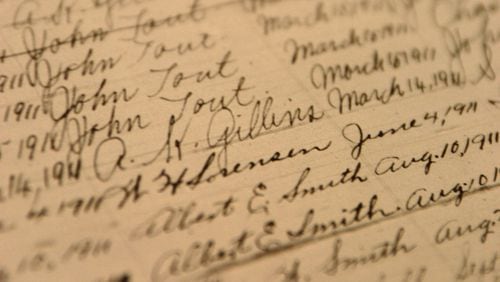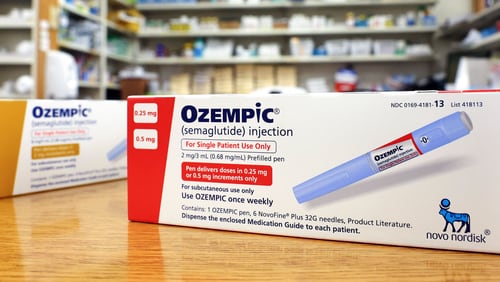In writing this column for nearly 50 years, we have tried to cover all the major changes and advances during that time. It’s hard to imagine that in 1977 we were typing said column and hand delivering it to the newspaper headquarters.
While computers existed in large scale versions, there was not a home version. I doubt many of us could have imagined the advances to come in computers and communication, let alone in genealogy research and the availability to access original sources online from all over the world.
While my personal email account is 30 years old, and Google announced it was 25 years old, the advent of Ancestry.com and FamilySearch.org has had the largest impact on genealogists.
In olden times, one had to go to a courthouse to look up material, or at least to the state archives where hopefully the county records up to a certain year were on microfilm. The Georgia Archives and Georgia’s legendary Ben Fortson were forerunners in continuing to microfilm records to make them accessible. Now most of these are digitized, online and viewable from home.
While attending large-scale conferences was important to learn the latest, now you can attend Zoom meetings, podcasts, webinars, and many other educational sessions to stay abreast. It’s hard to keep up, hence so one needs to decide where they want to spend their time, energy, and money.
DNA testing came along around 2000 and I know I got involved in 2005. Now that has become a required part of anyone’s genealogy proof if they really want to be sure of things.
So, now we ask, what is next?
GGS celebrates 60th anniversary
The Georgia Genealogical Society (GGS) is celebrating 60 years as one of the oldest genealogical societies in the state. It is planning its usual educational programming this year, as well as a special quarterly devoted to an update on the society’s 60 years.
The society was formed in 1964 out of a genealogy class taught by Carroll Hart, who later became the state archivist. For more information, see gagensociety.org.
Georgia Archives, get the latest news
On the Georgia Archives website, GeorgiaArchives.org, you can sign up to get press releases and other news. That way, you won’t miss anything. They have a new newsletter as well.
Contact Kenneth H. Thomas Jr., P. O. Box 901, Decatur, GA 30031 or kenthomasongenealogy.com.
About the Author






